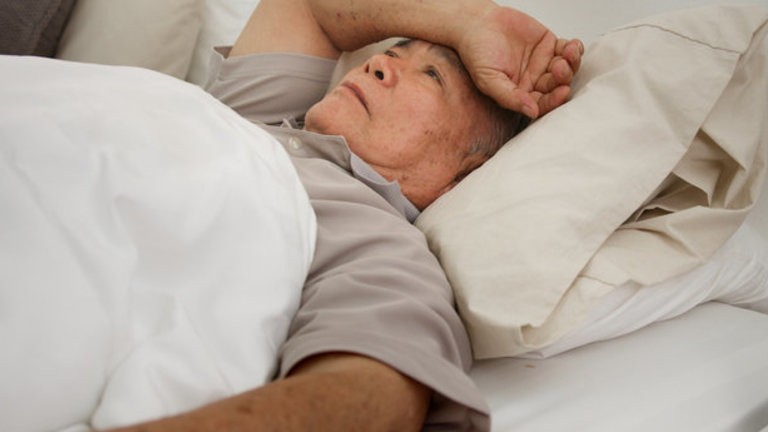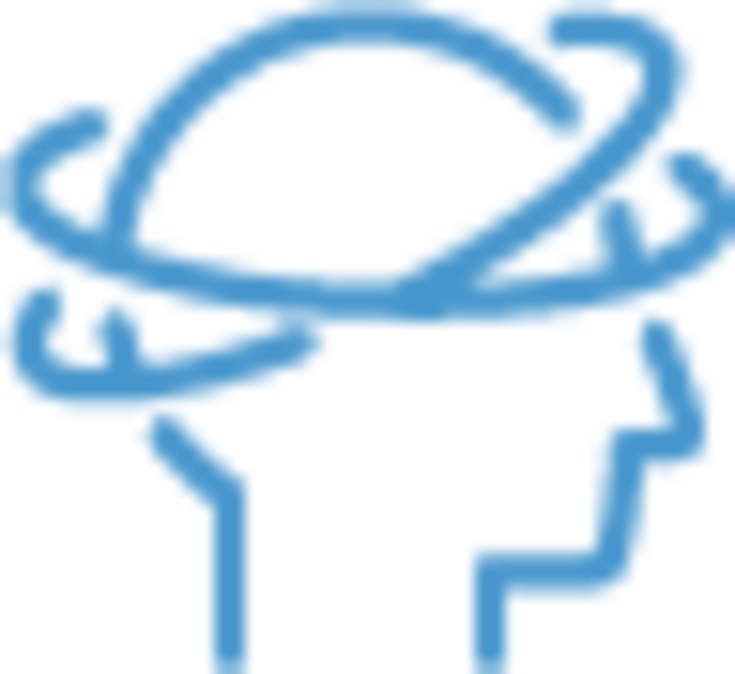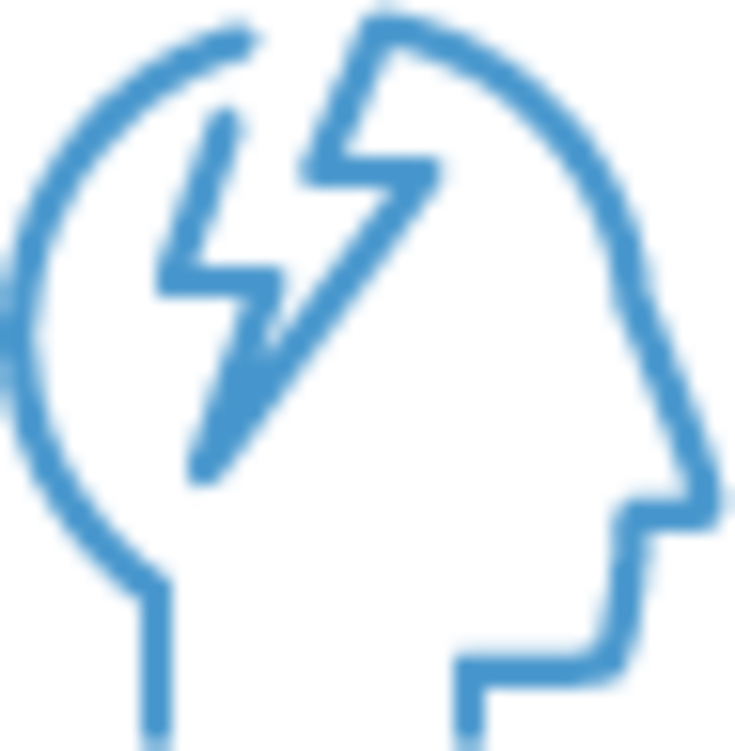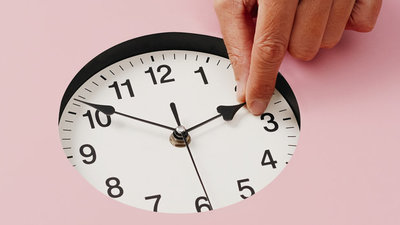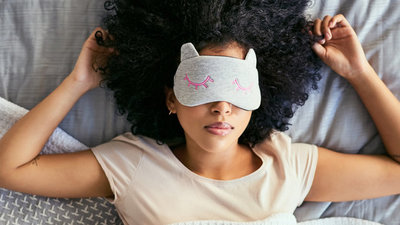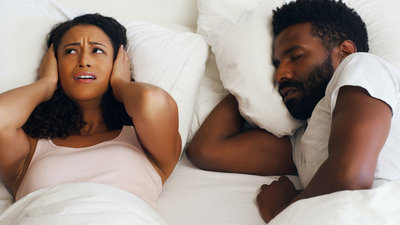Did you know that 1 in 5 Canadians experience some form of mental health issue in their lifetime?
Sleep plays a vital role in your well-being. Interrupted or poor quality sleep can impair your physical and mental health over time. Health Canada recommends that adults get 7-9 hours of sleep per night so understanding what causes interrupted sleep and how to improve it, is the key to staying healthy.
Common health issues or diseases that can lead to sleep disruption include:
- Obstructive Sleep Apnea (OSA)
- Central Sleep Apnea (CSA)
- Insomnia
- Snoring
- Sleep Paralysis
- Parasomnia
- Restless Leg Syndrome
- Narcolepsy
5.4 million Canadians suffer from sleep apnea, but only 1 in 4 have been diagnosed. Symptoms range from increased sleepiness during the day to lack of concentration, fatigue, snoring, sudden changes in mood and much more. Learn more about sleep apnea symptoms and take this short quiz to see if you may have sleep apnea.
Can untreated sleep apnea cause depression?
Studies have shown that patients with obstructive sleep apnea (OSA) are up to 63% more likely to suffer from depression. Symptoms of sleep apnea and depression can overlap making it difficult to distinguish one from the other. In many cases, sleep apnea can contribute to your depression, making it imperative to test for sleep apnea.
There are two close overlaps between sleep apnea and depression; sleep disturbance and serotonin deficiency.
- Sleep disturbance can lower your quality of life and considerably impact your mood affecting mental health.
- Serotonin deficiency is commonly found in patients with sleep apnea or depression. Serotonin is a neurotransmitter that plays an essential role in mood regulation and control of upper airway muscle during sleep.
The impacts of chronic lack of sleep can be devastating for your health. Deep slumber is essential to help our mind and body heal, promoting positive effects on mental health.
If you or your spouse have untreated sleep apnea, you could be at risk of depression.
Symptom Tracker for Depression
How do you know if you or someone you know has depression?
| Feelings of sadness, emptiness, or hopelessness | Irritability and frustration over small issues | Changes in appetite | Fatigue and tiredness |
| Trouble concentrating or thinking | Headaches, or back pain | Sleep Disturbances like insomnia or hypersomnia | And more |
If you, your partner or someone you know is struggling with depression, encourage them to speak with their family doctor. Poor sleep may be contributing to how they are feeling. Find out if you or your partner are at risk for sleep apnea by taking this short quiz.
There is a correlation between sleep apnea and depression. Some people experience an onset of symptoms from both conditions at the same time, while others experience sleep deprivation before depression.
How can you improve your mental health?
Treating sleep apnea can help reduce the symptoms of depression. The most effective sleep apnea treatment is CPAP therapy, which uses air pressure to open the upper airway during sleep. CPAP is known to be 95% effective in treating sleep apnea. Find out more about CPAP therapy.
In addition to sleep apnea treatment, you can improve the quality of your sleep with the following tips:
Exercise regularly
Engaging in physical exercise can make you feel less tired. Regular exercise in the morning or early afternoon can improve sleep quality. Try to avoid strenuous exercise within 4 hours of bedtime.
Maintain a bedtime routine
Going to bed and waking up at the same time every day—yes, even on weekends!— helps maintain the body’s internal clock. Allow yourself about 30 minutes to prepare for bed. This means turning off your devices, limiting light exposure and maintaining a relaxing environment to promote sleep. When you set a wake-time, ensure you have at least 7 hours of sleep at night.
Avoid alcohol, caffeine, and nicotine before bed
Nicotine has an arousing effect on the body and disrupts your sleep cycles. Alcohol is known to reduce Rapid Eye Movement (REM) sleep. The REM sleep stage is responsible for dreaming and memory formation. Reduction in REM sleep increases sleepiness in the daytime. Avoid drinking caffeinated beverages after midday and limit morning coffee to 1—2 cups.
Restrict naps to 20 minutes and preferably no longer than 1 hour
Studies have shown longer naps can lead to serious conditions such as heart disease and diabetes! Napping in the late afternoon and early evening can interfere with a good night’s sleep. So, take brief naps, under 20 minutes, to help reduce fatigue, improve alertness and mood.
You can also practice relaxation through stress reduction techniques like meditation, yoga, deep breathing, music, counseling, and more. Regularly review medication with your physician or pharmacist to help improve that deep slumber!
Just remember, good quality sleep and positive mental health are not a luxury — they are necessities!
If you have any additional questions about sleep disorders and sleep apnea treatment, we would love to help. Please contact us to connect with a VitalAire sleep health educator.
References:
Adopt good sleep habits. Adopt Good Sleep Habits | Need Sleep. (n.d.). Retrieved January 25, 2022, from https://healthysleep.med.harvard.edu/need-sleep/what-can-you-do/good-sleep-habits
Alcohol and sleep. Sleep Foundation. (2021, November 29). Retrieved January 25, 2022, from https://www.sleepfoundation.org/nutrition/alcohol-and-sleep
Evans, J., Skomro, R., Driver, H., Graham, B., Mayers, I., McRae, L., Reisman, J., Rusu, C., To, T., & Fleetham, J. (2014). Sleep laboratory test referrals in Canada: Sleep apnea rapid response survey. Canadian respiratory journal. Retrieved January 25, 2022, from https://www.ncbi.nlm.nih.gov/pmc/articles/PMC3938242/
Ejaz, S. M., Khawaja, I. S., Bhatia, S., & Hurwitz, T. D. (2011, August). Obstructive sleep apnea and Depression: A review. Innovations in clinical neuroscience. Retrieved January 25, 2022, from https://www.ncbi.nlm.nih.gov/pmc/articles/PMC3173758/
Harris, M., Glozier, N., Ratnavadivel, R., & Grunstein, R. R. (2009). Obstructive sleep apnea and Depression. Sleep Medicine Reviews, 13(6), 437–444. https://doi.org/10.1016/j.smrv.2009.04.001
Headway - putting sleep apnea, and depression, to rest. Johns Hopkins Medicine, based in Baltimore, Maryland. (n.d.). Retrieved January 25, 2022, from https://www.hopkinsmedicine.org/news/publications/headway/headway_spring_2011/putting_sleep_apnea_and_depression_to_rest
Jewell, T. (2019, March 12). Depression and sleep: Connection, research, and treatments. Healthline. Retrieved January 25, 2022, from https://www.healthline.com/health/healthy-sleep/depression-and-sleep#takeaway Yamada, T., Search for more papers by this author, Nobuhiro, S., & Takashi, K. (2016, April 1).
Daytime napping, daytime sleepiness and the risk of metabolic diseases: Dose-response meta-analysis using restricted cubic spline model: Journal of the American College of Cardiology. Retrieved January 25, 2022, from https://www.jacc.org/doi/10.1016/S0735-1097%2816%2931952-0?articleid=2510328
